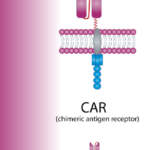We strongly believe that well-informed patients tolerate and respond to therapy better than those who are less well informed.
TR: What is your personal connection to CAR T cell treatment for autoimmune diseases?
NK: I am the father of Patient No. 5. During early discussions in Erlangen, Georg Schett, MD, head of the Department of Medicine 3 (Rheumatology and Immunology) of the Friedrich-Alexander University Erlangen-Nürnberg, asked about my work. At the time, we were developing VR projects for rare diseases, such as atypical hemolytic-uremic syndrome, paroxysmal nocturnal hemoglobinuria and myasthenia gravis. Dr. Schett introduced me to Sandra Jeleazcov, head of science communication at Erlangen, and we explored VR’s potential for lupus treatment education.
Our personal experience reinforced the need for better patient education. We spent years navigating medical discussions, often resorting to Google searches to understand terms and treatment options. This [approach] was not because doctors were unhelpful—on the contrary, they were excellent—but because they lacked the time for in-depth explanations.
When facing a severe disease, understanding all treatment options is vital for making the best decisions. As parents, we tried to give our daughter hope, but without sufficient information, we struggled to explain risks, benefits and alternatives. This experience fueled my passion for developing tools that empower patients and caregivers.
TR: What are your ultimate goals for this VR app and similar products?
NK: We currently offer two VR applications: a social VR experience, in which the doctor and patient navigate the treatment together; and a single-player version, allowing independent exploration.
Our vision is to expand beyond pre-therapy education. Patients visit the hospital multiple times—why not use waiting periods for deeper education? They could learn about cytokine storm prevention, CAR T cell behavior in the body, immune system re-education and post-treatment care.
We also aim to provide this tool to caregivers and family members because they play a crucial role in patient support. Additionally, [the app] can serve as an educational resource for medical students and doctors.
Lastly, we plan to expand globally. The app is already available in German, English and Italian. Thanks to close collaboration with medical experts, we ensure scientific accuracy, making it an ideal application for further translation and wider distribution.
 Jason Liebowitz, MD, is an assistant professor of medicine in the Division of Rheumatology at Columbia University Vagelos College of Physicians and Surgeons, New York.
Jason Liebowitz, MD, is an assistant professor of medicine in the Division of Rheumatology at Columbia University Vagelos College of Physicians and Surgeons, New York.



